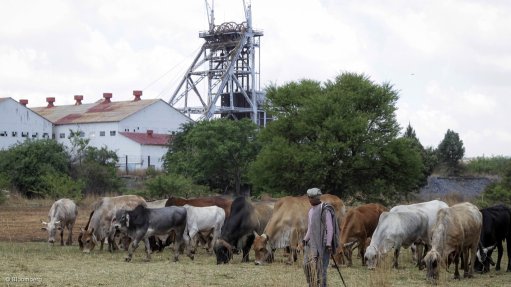China overtaking African infrastructure development
Traditionally, African countries sought skills from South Africa for infrastructure development, but a gradual shift to employing Chinese services is evident, as the Asian country is establish- ing multinational trade agreements with African countries and, therefore, there is less demand for South Africa’s skills.
China is more efficient than South Africa in providing finance for project development and in supplying workers and resources, says international credit insurer Coface lead analyst Saijil Singh. “Labour is cheaper, technologies are more readily available and funding models are more efficient, as China has a large capital base with a growing economy.”
African countries have realised that China is invested in Africa for the long run, Singh notes.
From an emerging market point of view, South Africa’s road infrastructure is good, compared with developing countries. However, compared with First World countries, such as Europe and the US, the country is lagging.
Singh stresses that, although South Africa is making headway with its infrastructure development, this is happening slowly and not in line with the country’s economic growth. “The country’s infrastructure development is often viewed in a negative light by industry stakeholders, as it is compared with that of First World countries.”
The technology available for infrastructure building in South Africa is far more advanced than that of emerging markets, he adds.
“South Africa can build a complete highway system without requiring external resources, which is not the case with other African countries, such as Angola and Mozambique.
“However, if we want to position our- selves as a competitor of Europe and the US, our infrastructure requires faster development,” Singh notes.
South Africa’s current infrastructure cannot support its economy and is, there- fore, preventing growth, he points out, adding that the country’s infrastructure improvement is not taking place as fast as the emergence of its rising middle class.
“For the economy to grow, infrastructure and wealth should develop at the same pace as, and support, the emerging middle class, which has outgrown infra- structure development over the last few years.”
However, Singh points out that the future of South Africa’s road infrastructure is not looking positive. “All economic sectors are interlinked; therefore, mining and agricultural problems are impacting on infrastructure. If these sectors are not expe- riencing growth, there is no purpose in improving road infrastructure,” he says.
Further, misappropriation and misallocation of funds awarded to municipalities by government for infrastructure development, as well as corruption, are prevalent, resulting in funds not reaching contractors.
“There is a big gap in the transference of the State budget to contractor level, which is where our infrastructure can be built,” he points out.
“South Africa does have the funds to improve its infrastructure, as the national Budget for 2013 has allocated just under R1-trillion for road infrastructure development. “Therefore, funds are available to ensure infrastructure growth, but need to be allo- cated through the right channels, while tenders should be published and awarded to ensure that infrastructure development is realised.”
Consequently, education and skills need to be improved for South Africa to develop its infrastructure further. “Education needs to be improved from primary school level upwards and our skills development programmes also need to be improved,” Singh stresses.
He adds that the extent of the skills shortage across South Africa is being acknowledged by government and private entities. This is evident in the obvious intent to deal with this by implementing new training programmes and setting aside funds for development.
“Skills development is a definitive focus for government, but whether its skills improvement programmes will be success- ful and efficient enough to grow South Africa’s skills base cannot be predicted,” notes Singh.
Article Enquiry
Email Article
Save Article
Feedback
To advertise email advertising@creamermedia.co.za or click here
Press Office
Announcements
What's On
Subscribe to improve your user experience...
Option 1 (equivalent of R125 a month):
Receive a weekly copy of Creamer Media's Engineering News & Mining Weekly magazine
(print copy for those in South Africa and e-magazine for those outside of South Africa)
Receive daily email newsletters
Access to full search results
Access archive of magazine back copies
Access to Projects in Progress
Access to ONE Research Report of your choice in PDF format
Option 2 (equivalent of R375 a month):
All benefits from Option 1
PLUS
Access to Creamer Media's Research Channel Africa for ALL Research Reports, in PDF format, on various industrial and mining sectors
including Electricity; Water; Energy Transition; Hydrogen; Roads, Rail and Ports; Coal; Gold; Platinum; Battery Metals; etc.
Already a subscriber?
Forgotten your password?
Receive weekly copy of Creamer Media's Engineering News & Mining Weekly magazine (print copy for those in South Africa and e-magazine for those outside of South Africa)
➕
Recieve daily email newsletters
➕
Access to full search results
➕
Access archive of magazine back copies
➕
Access to Projects in Progress
➕
Access to ONE Research Report of your choice in PDF format
RESEARCH CHANNEL AFRICA
R4500 (equivalent of R375 a month)
SUBSCRIBEAll benefits from Option 1
➕
Access to Creamer Media's Research Channel Africa for ALL Research Reports on various industrial and mining sectors, in PDF format, including on:
Electricity
➕
Water
➕
Energy Transition
➕
Hydrogen
➕
Roads, Rail and Ports
➕
Coal
➕
Gold
➕
Platinum
➕
Battery Metals
➕
etc.
Receive all benefits from Option 1 or Option 2 delivered to numerous people at your company
➕
Multiple User names and Passwords for simultaneous log-ins
➕
Intranet integration access to all in your organisation

















